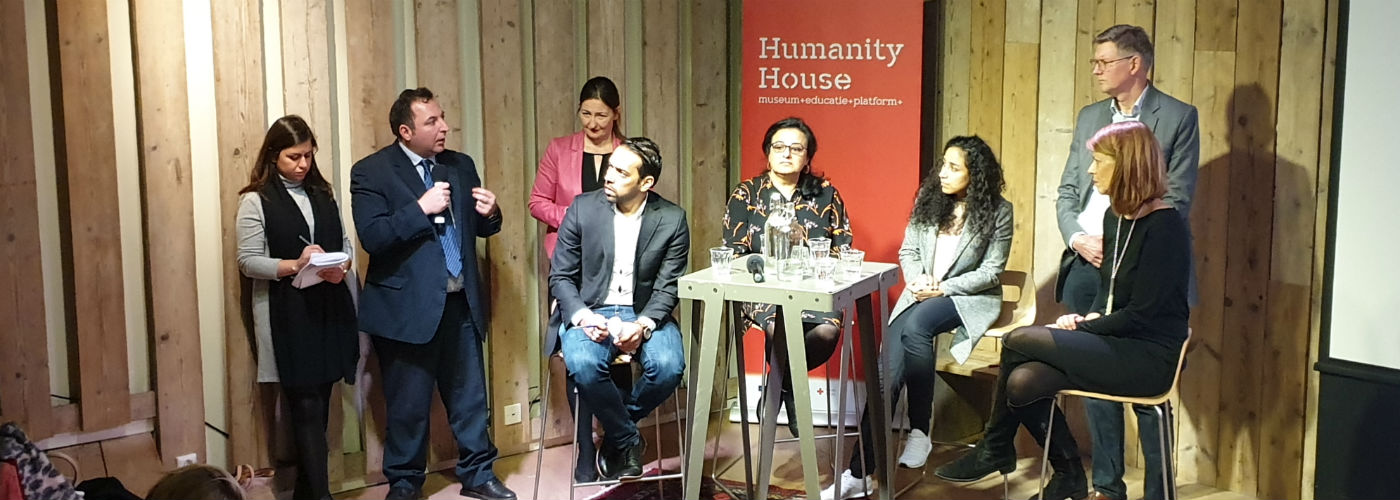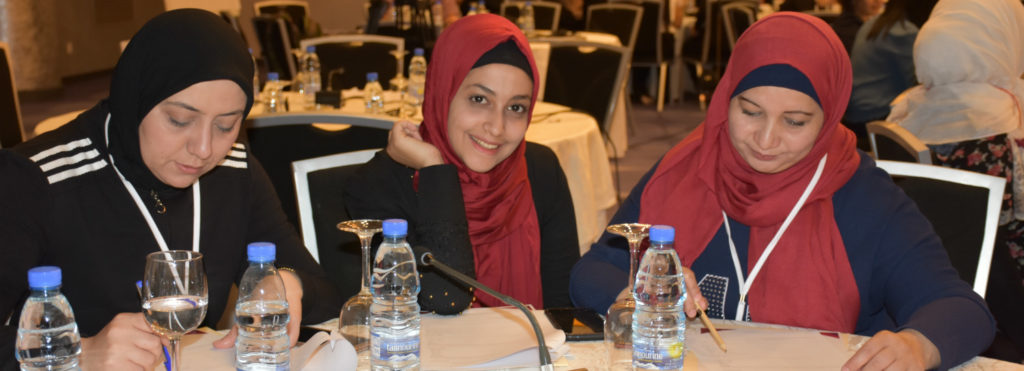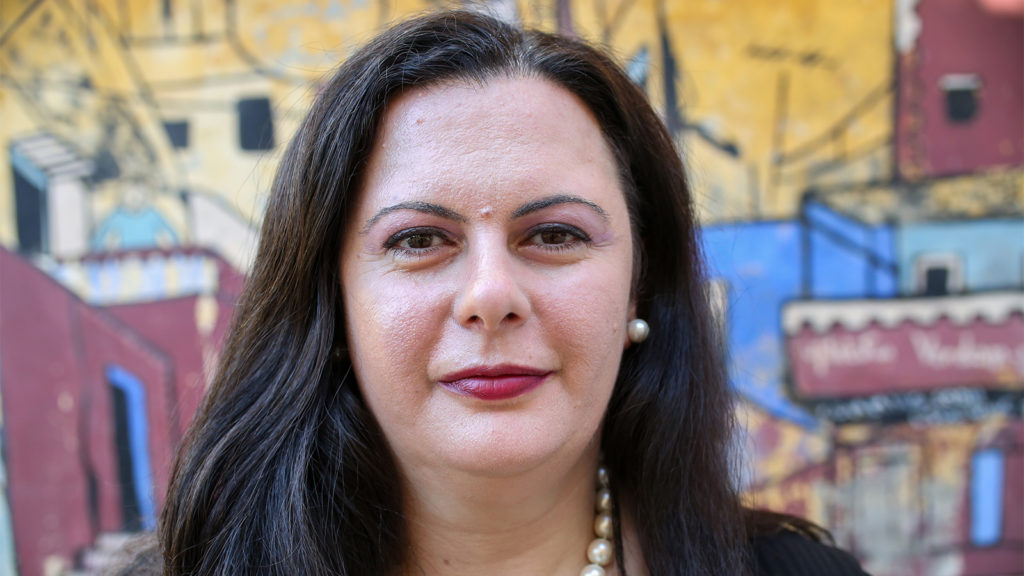The estimates depend on whom you ask, but one thing is certain. Since the start of the Syrian war in 2011, hundreds of thousands of civilians have been killed and wounded. Millions more have had to leave everything behind, including family, in search of safety. As international power blocks fight to secure their own interests in the region, and ceasefires come and go, a way to lasting peace and security for the civilian population in Syria does seem very far away.
Women demanding freedom and dignity
But that doesn’t mean Syrian citizens have given up their struggle for freedom and dignity. And an important driver for this comes from a place that is not so mainstream yet: Syrian women. Many of them have lost their husbands and have had to take care of their families and communities themselves. They often don’t even realize that they are real leaders. Yet they’re becoming increasingly aware of their important role in securing lasting peace. Now more and more women are taking up the gauntlet.
One of these courageous women is Hivos partner Sabah Al Hallak, who in December addressed the UN Security Council. For years Hivos has been working with her and other Syrian peace activists to ensure they play a role in the future of their country. One of our efforts was the debate we organized at Humanity House in The Hague with activists Hanadi Shabta, Mouna Ghanem, Mazen Darwish and other close colleagues of Ms. Al Hallak. Here, they were able to share their vision about the way forward through women with Dutch policymakers and experts. After further meetings with Dutch MPs and civil servants, they continued to Brussels to speak with politicians and Euro-parliamentarians.
For their safety, we have not directly quoted speakers or audience members, but rather summarize their key talking points (below). The core message of all is clear. They demand peace and a place at all negotiating tables so they can start rebuilding what is left of their livelihoods and country.
Syrian society
So what are the next steps towards a dignified life according to these Syrian activists? No matter what, Syrian society should be able to determine its own future, they say. “Twenty-three million Syrians are perfectly able to run their own country once peace is restored and global interests are not being fought out on our territory.” It’s clear to them that international power constellations have created a false dilemma for Syrians: the choice between Syrian terrorists or a Syrian tyrant. “As long as these power blocks fight for their own interests and not to give Syrians freedom and dignified living conditions, any attempts at restoring peace will move forward slowly and remain fragile. Or even backslide.”
Europe and the international community
And what is the role of Europe? European politicians seem to be focused exclusively on refugees, and especially on keeping as many Syrians as possible out of Europe. Even including extremists that left European countries to join ISIL, and who are still European citizens. This is no long-term strategy, nor realistic, the women activists agreed during the debate.
“Whether Europe likes it or not, Syria is on NATO’s southern border and almost connected to the continent. So Europe really needs to think twice about following the lead of the US, which has a lot less to lose, or staying in a position where it is continuously blackmailed by Erdogan and Assad. Europe is already feeling the tremors of the Syrian war, which can turn into a very strong earthquake if the war continues. As long as there is no chance for a dignified life in safety, Syrians will not go back. They will stay in Europe forever and find ways to bring their family and friends.”
Putting human rights at the center
Of course, Syrian civil society and Europe cannot solve the current situation alone, the women stressed. “Syria needs a UN peace process with all parties included. A regional agreement taken to the UN, created by Syrians themselves. A Marshall plan, combined with a long-term peace strategy, just like after all great wars and revolutions. The last thing Syria needs are more fighters and weapons, because then you only feed extremism, and death and destruction will continue. As long as the international community is playing war games and not putting human rights at the center of everything they do, peace and security cannot be achieved.”
Without women, there’s no democracy, no human rights, no security.
Syrian women now see that what they’re actually fighting for are rights: their right to speak and think freely, their right to control their bodies, and their right to raise and protect their families. A revolution of changing values is taking place. “Without women, there’s no democracy, no human rights, no security. No peace can ever be restored if you exclude more than half of the population.”
Before the war, the mother of one activist present at the debate didn’t even know what gender was, let alone gender equality. Now she tells her female neighbors that her daughter is fighting for her rights. And their rights. Human rights.



